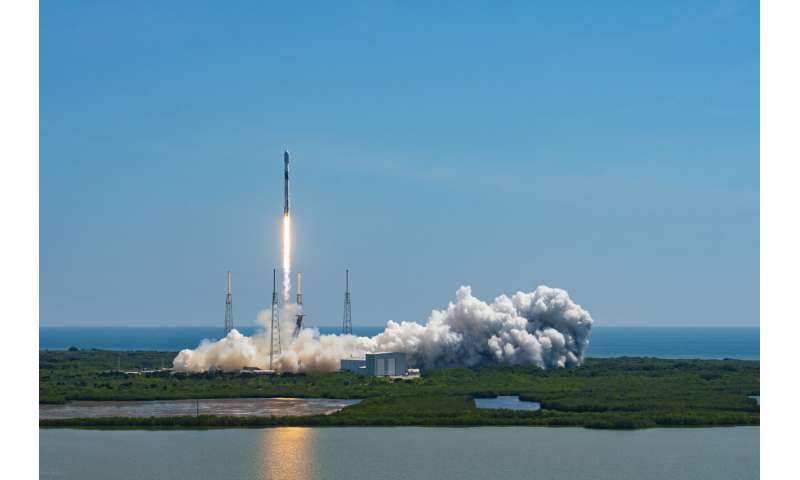Astronomers aiming to solve mysteries of universe by mapping billions of galaxies

Mysteries of the dark universe which have bewildered astronomers for centuries could finally be solved by scientists after a satellite was fired into space.
The £1billion Euclid rocket was launched by SpaceX in July to reveal the origins of the cosmos.
The satellite, which is fitted with telescopic space cameras, is on a six-year mission to shed light on dark energy and dark matter—which scientists say account for 95 percent of the known universe.
Professor of Astrophysics Francesco Shankar, from the University of Southampton, is part of the international consortium working on Euclid with NASA and the European Space Agency.
He said the satellite will create a giant map of the structure of the universe by observing billions of galaxies.
Prof Shankar added: "The Euclid space telescope will chart the distribution of galaxies across cosmic space and time to reveal the rate of expansion and formation of the universe. These are invaluable observational constraints which can shed light on the nature of dark energy."
The Euclid satellite was launched from SpaceX's Falcon 9 rocket at its Cape Canaveral station in Florida and is currently flying towards the L2 Lagrange point—located 1.5million kilometres from Earth.
It intends to photograph more than one-third of the extragalactic sky outside the Milky Way using its high-precision camera—and will perform near-infrared spectroscopy of hundreds of millions of galaxies and stars over the same area.
Scientists will use the data collected by the satellite to test dark energy, dark matter, and alternative gravity theories, and also unravel the evolution of galaxies and supermassive black holes, which is the subject of Prof Shankar and his team's work at Southampton.
He added: "Dark energy and dark matter are elusive components—and we don't know much about either. By imaging billion of galaxies, Euclid will give us data on the structure of the universe up to very large scales and at different cosmic epochs, providing invaluable observational constraints on the nature of dark matter and dark energy."
The Euclid satellite's space mission will last until at least 2029.
The European Space Agency, which funded the project, said the quality of the images will be four times sharper than those taken from the ground.
For more about Euclid visit www.esa.int.
Provided by University of Southampton